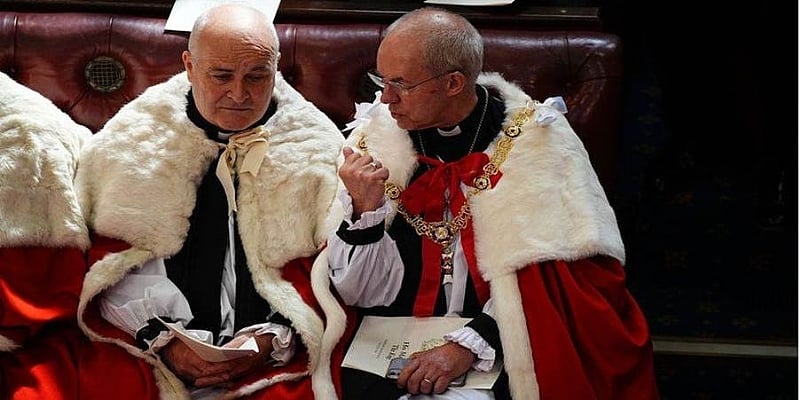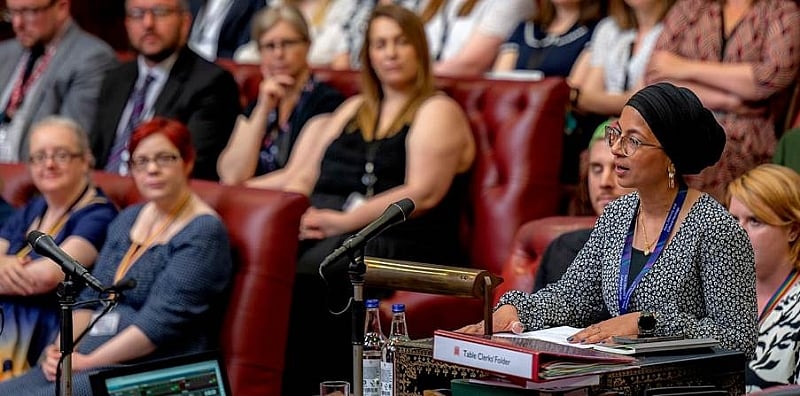That Parliament is poised to enact legislation that would possibly redefine the very meaning of life, death, and moral responsibility in the United Kingdom hit many well-meaning Brits really hard. The two issues of abortion and assisted suicide that are being debated with renewed intensity and legislative fervour are very critical. As lawmakers debate the merits of these deeply controversial issues, a vital question that must reflect is: where are the custodians of our nation’s conscience?
Christianity has historically underpinned moral law and public ethics in the UK, and so the potential legalisation in favour or further liberalisation of abortion and assisted suicide raises profound moral and spiritual concerns. The issues involved go far beyond individual choices or medical rights. These are questions of the value we place on life itself. From a Christian perspective and in fact, from the viewpoint of most ethical systems, the sanctity of life is inviolable. Life is not meant to be a commodity that can be created or destroyed at will. It is a sacred gift, imbued with purpose, mystery, and value beyond what we can imagine or measure. Yet, the growing momentum to decriminalise abortion and endorse assisted suicide seems to disregard this central moral principle. What brought us here? Why is there such legislative eagerness to rewrite moral codes that have governed human society for millennia? And perhaps more crucially, why do our religious leaders, our bishops in the House of Lords, seem so helpless in their resistance to these changes?
The conversation around abortion has long been inundated with intense debate. Proponents argue for women’s rights and autonomy of the body, citing extreme cases like rape, incest, or danger to the mother’s life. But far from being restricted to these rare cases, abortion has, in practice, become increasingly normalised, even convenient. Yet, it is common knowledge that the consequences of abortion extend far beyond the medical procedure. Women who undergo abortions are often left to grapple with severe psychological effects: guilt, depression, anxiety, and a deep sense of loss that may never be fully reconciled. These are not hypothetical dangers, they are well-documented in countless studies and personal testimonies. Therefore, why should every woman not be thoroughly and truthfully informed about these risks before she can make such a profound decision?
What safeguards are in place to ensure that women who desire to abort receive not just clinical data but also moral guidance? In many cases, counselling services are either absent, underfunded, or ideologically skewed. Who ensures that a vulnerable young woman, perhaps coerced by family or partner, truly has the freedom to say no? And what of the moral burden society bears in silently condoning the termination of unborn life? When abortion becomes routine, life itself is devalued and we risk breeding a culture where convenience trumps compassion, and rights override responsibilities.
The push to legalise assisted suicide or as some would prefer to call it, “medical aid in dying” is often framed as an act of compassion. Advocates argue that those suffering from terminal illnesses or unbearable pain should have the option to end their lives with dignity. But this view only simplifies a far more complex moral landscape. Assisted suicide opens a Pandora’s box of ethical dilemmas. How do we ensure that a decision to die is truly voluntary and informed, especially in cases of mental illness or cognitive decline? What about elderly individuals suffering from dementia, can they genuinely consent to end their lives? Or will such laws become tools for unscrupulous family members or caregivers to inherit wealth or relieve themselves of a ‘burden’?

We must not overlook the inherent dangers in these laws. In countries where assisted suicide has been legalised, there have been alarming cases of coercion, misdiagnosis, and even patients being pressured into the decision. The risk of abuse is real and immediate. How do we create safeguards strong enough to prevent such tragedies?
The House of Lords, by its very structure, includes bishops of the Church of England, the Lords Spiritual. These men and women are not just ceremonial figures; they are meant to serve as the moral compass of the nation. Their presence in the legislature is a legacy of Britain’s Christian heritage, a recognition that spiritual wisdom has a role to play in governance. But where are their voices now, when the very core of Christian teaching, the sanctity of life, is under threat? One cannot help but feel that the Lords Spiritual are failing in their divine and civic duty. Silence, in the face of moral compromise, is complicity. If the bishops do not speak up now, when will they? Are we to believe that political correctness, modern relativism, or societal pressure has dulled their prophetic voice?
The majority of us, British people, appeal to the Lords Spiritual to awaken to their responsibilities. They must speak with clarity and conviction, reminding Parliament and the nation that not all progress is virtuous, and not all rights are righteous. Britain today is morally confused. In the name of choice and personal freedom, we have allowed ourselves to drift from foundational truths. Rights have become untethered from duties. Laws have become devoid of moral context. In such a time as this, more than ever, we need custodians of conscience, those who will speak truth even when it is unpopular. Faith and community elders, educators and lawmakers must rise together and call for a re-examination of these dangerous legislative trends. We must ask ourselves over again what kind of society we want to be: one that protects the vulnerable, or one that permits their quiet disposal? One that upholds life, or one that manages death?
There is still time to change course. Parliament must approach these proposed laws with caution, humility, and a sense of moral gravity. And if the laws must be passed, it is necessary that these additional safeguards should be considered:
Comprehensive Counselling Services: Every woman considering abortion must have access to objective counselling that explores medical risks, psychological impact, and moral dimensions.
Mandatory Waiting Periods: Decisions that involve the termination of life should not be made hastily. Waiting periods ensure sober reflection.
Oversight Committees: Assisted suicide decisions must be reviewed by multidisciplinary ethics committees, not just medical practitioners.
Strict Protections for the Mentally Impaired: No person suffering from dementia, severe mental illness, or cognitive decline should be eligible for assisted suicide.
Legal Accountability for Coercion: Laws must be enacted to severely punish anyone found to have influenced, coerced, or manipulated another person’s decision to end a life.
Transparent Reporting and Public Scrutiny: Every abortion and assisted suicide must be documented, reviewed, and open to public accountability.
This is not merely a political issue; it is a spiritual and moral crisis. If the bishops and lords of the United Kingdom cannot rise to this occasion, then the soul of the nation may be irreparably damaged. Britain needs to hear from its moral custodians, not tomorrow, not next year, but now. The decisions we make today will echo for generations. They will shape the kind of nation we become. Do we uphold life in all its forms and complexities, or do we capitulate to a culture of death disguised as dignity? To the Bishops and other Lords Spiritual, we say: speak up. You are the conscience of the nation. You are not here to follow the world, but to lead it toward truth. And to every citizen who believes that life still matters, raise your voice. The time to act is now.


